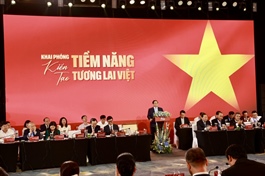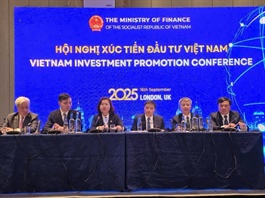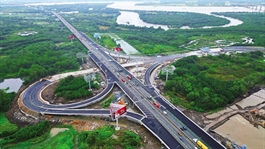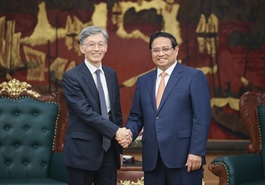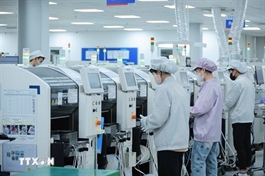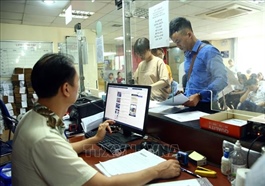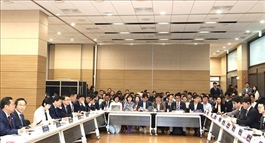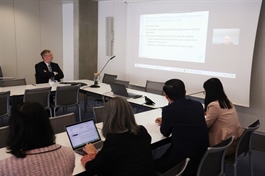Accelerating digitalisation and institutional reform for green agriculture
Accelerating digitalisation and institutional reform for green agriculture
Business leaders are calling for stronger government support to boost the competitiveness and global standing of Vietnam’s agricultural exports.
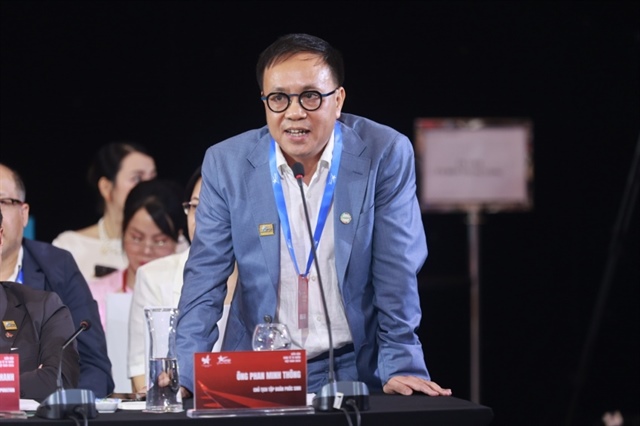
Nguyen Manh Hung, chairman of Nafoods |
Speaking at the Vietnam Private Sector Forum (VPSF) 2025 in Hanoi on September 16, participants urged greater investment in logistics and deep-processing infrastructure, stronger institutional frameworks for green and transparent agriculture, accelerated digitalisation and traceability, and the development of national brands.
Nguyen Manh Hung, chairman of Nafoods, noted that processed agricultural goods have become a cornerstone of Vietnam’s exports, generating tens of billions of US dollars annually and reaching markets in more than 170 countries.
However, most of the output remains raw or semi-processed with limited added value, leaving Vietnam’s international competitiveness below its potential. “This is a major challenge if Vietnam seeks to become a global hub for sustainable agricultural processing,” he said.
Drawing from Nafoods’ journey from a small factory in Nghe An province to operating six factories nationwide and exporting to over 70 countries, Hung said there are four key bottlenecks: high logistics costs due to weak cold-storage infrastructure; complicated certificate of origin, VAT, and tax-refund procedures that delay operations; too few strong national brands and weak linkages between enterprises, farmers, and research institutions; and incomplete frameworks for green agriculture, carbon credits, and digital traceability that hinder compliance with international standards.
To address these issues, Hung said priority should be given to developing green logistics infrastructure and smart cold-storage facilities in farming regions, with the state providing the hard infrastructure and enterprises investing in the soft.
He also called for co-funding trade promotion and building national brands for key commodities such as passion fruit, mango, coffee, and rice, improving tax, land, and green-agriculture policies, and implementing a carbon credit mechanism to advance the circular economy and adopt environmental, social, and governance (ESG) adoption.
“Another critical step is building a national strategy for processed agricultural products, anchored in high-tech agricultural zones that integrate logistics, digital technology, and innovation,” he said.
Hung reaffirmed Nafoods’ commitment to pioneering digitalisation, AI, the Internet of Things, and circular value-chain models. “We firmly believe that with the support of the government and the business community, Vietnam can absolutely become a global hub for green and sustainable agricultural processing, delivering prosperity to the nation, happiness to farmers, and elevating Vietnamese brands on the world stage,” he said.

Phan Minh Thong, chairman of Phuc Sinh Group |
From another perspective, Phan Minh Thong, chairman of Phuc Sinh Group, emphasised that to enhance the value and competitiveness of Vietnamese farm produce in international markets, the key is the investment in deep-processing infrastructure and research & development directly in farming areas. Modern processing plants combined with research centres would significantly raise product value, creating strong leverage for exports.
“Small- and medium-sized enterprises in the sector should be developed in line with international standards, with transparent governance, clear customer data, and third-party auditing to reinforce trust among foreign partners,” he emphasised.
Thong underscored the urgent need to standardise sustainable agriculture, particularly through strict control of pesticide use, to safeguard the reputation of Vietnamese products. He noted that Phuc Sinh has worked with farming households for the past 15 years to establish a digitalised traceability system from farm to market, enabling compliance with ESG standards, preventing deforestation, and opening doors to demanding markets.
He stressed that the government continue strengthening public–private partnerships, provide reasonable tax incentives, streamline administrative procedures, and invest in logistics infrastructure to cut costs and boost competitiveness.
As a long-term solution, Thong suggested establishing a national commodity exchange to ensure transparent pricing and data, helping Vietnamese businesses reduce reliance on international prices and gradually secure greater pricing power.
“With 60-65 per cent of the population engaged in agriculture, building a transparent, sustainable, and modern ecosystem would empower private enterprises to upgrade value chains and reinforce Vietnam’s global position,” he said.
He added that the private sector is a key driver of national development; with policy bottlenecks removed, it could generate hundreds of thousands of jobs and further deliver Vietnamese products to the world.
“Phuc Sinh and the private business community are ready to accompany the government in building a sustainable economy, where Vietnamese brands are celebrated, farmers benefit, and the country thrives,” he emphasised.
- 18:28 18/09/2025







